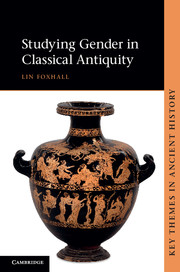Book contents
Chapter 5 - Wealth
Published online by Cambridge University Press: 05 May 2013
Summary
THE ECONOMICS OF GENDER
Economics in most societies is gendered in two fundamental ways:
Ideally and in practice, tasks, jobs and occupations are assigned and undertaken first by gender, often before other factors such as status and age come into play. Even if ideals do not always precisely determine reality, they are important in terms of structuring gendered hierarchies which configure differential access to wealth and property. Some routes to the acquisition of wealth filter out individuals by gender, most often women, but also specific types of men. Obviously, almost everywhere wealth carries with it power and influence over others. More specifically, gender may be a significant (though not the only) factor in the control by one person over the time, labour and consumption of another.
In most past societies, in both law and custom (Gould 1980), women and men of the same status generally had different relationships to property, and to material goods more broadly. This often limits the access of women to economic resources in comparison with men of the same status. On the other hand, wealth and high status can mitigate or override normal gendered expectations; in many societies elite women can do things that lower-status women usually cannot.
Consumption, how people use material goods in ways beyond the bare utilitarian, is a key aspect of wealth in its social context (Graeber 2011; Mullins 2011). There is usually a considerable degree of social consensus on the particular qualities and attributes assigned to material goods. Therefore what is consumed, in what quantities and in what contexts all contribute to the construction of social and political identities as well as to status and socio-political hierarchies more broadly. Different people have different relationships to material objects, and gender is one of the major fault lines.
- Type
- Chapter
- Information
- Studying Gender in Classical Antiquity , pp. 90 - 113Publisher: Cambridge University PressPrint publication year: 2013



